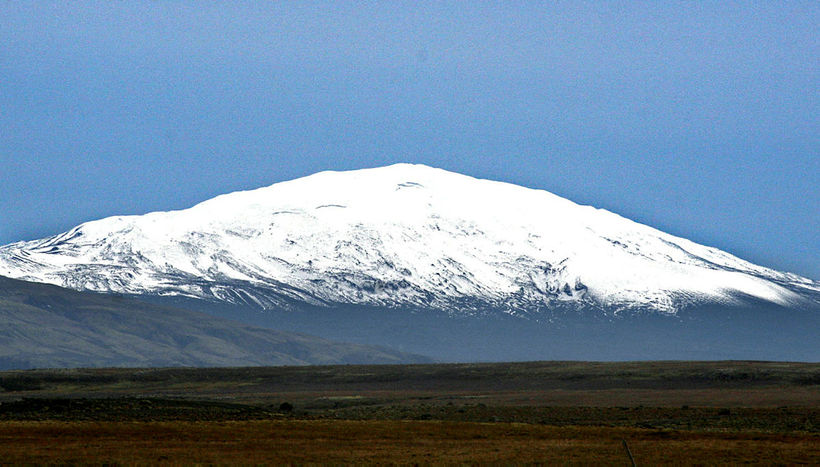Understanding Hekla and Eyjafjallajökull
What is the meaning of Hekla? You’ve probably heard of Iceland’s most famous volcano, but the answer to what its name means can be found on the website of MS dairy company which, in cooperation with Árni Magnússon Institute for Icelandic Studies, worked to increase people’s awareness of place names by printing explanations of them on their milk cartons.
The word Hekla can mean coat or outer garment. The origin of the name may have to do with the fact that Hekla puts on a coat of snow earlier than most mountains, only to throw it off in spring when weather allows.
Lakagígar is a series of craters near Vatnajökull glacier. The origin of their name comes as a surprise. The word Lakagígar means the craters of Laki, which is the mountain at their center. Laki is the word for one of the compartments of a ruminant’s stomach, more precisely the omasum. The name is believed to stem from the fact that the shape of the mountain reminded people of that of an omasum.
Esja, the mountain across the bay from Reykjavík, has an interesting name. Old stories exist of an Irish woman by the name of Esja, who lived in Esjuberg. Therefore, some believe the name is Irish. More likely, though, it is a Scandinavian female name, for it exists all over Scandinavia, meaning both fireplace and a type of rock. It may refer to a light-colored rock type, found in the mountain.
Fnjóskadalur valley in North Iceland is the site of Vaglaskógur forest. The name is made from the words fnjóskur, meaning a dry peace of wood, and dalur, meaning valley. Archaeological finds in the valley suggest that ages ago, coal was made from dry wood in the forest.
And how about dissecting the word Eyjafjallajökull, the volcano which famously erupted 2010, stranding passengers in many parts of the world? Pronouncing the word proved difficult for many a tourist, whereas understanding it is quite easy. The word is derived from two words: Eyjafjöll and jökull. Jökull means glacier and Eyjafjöll means island mountains. Eyjafjöll is the name of the mountains under the Eyjafjallajökull ice cap. The islands referred to may be Vestmannaeyjar islands, to the south, or Landeyjar, the area to the west of the mountains.








